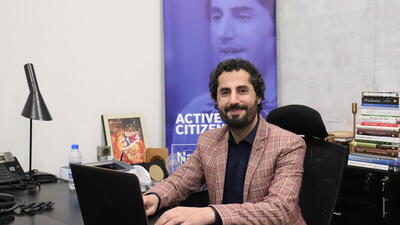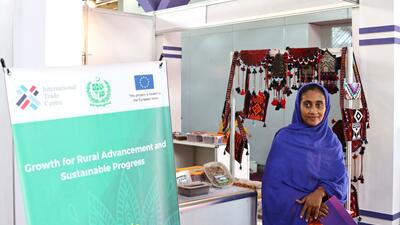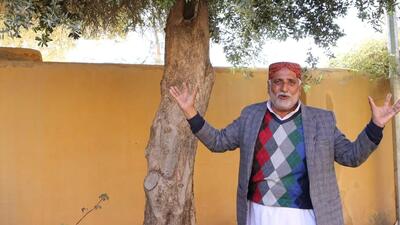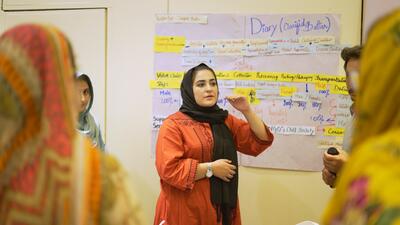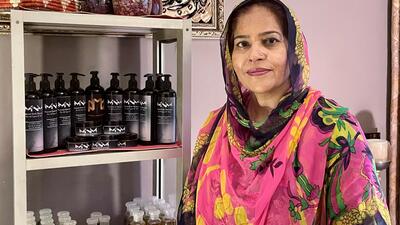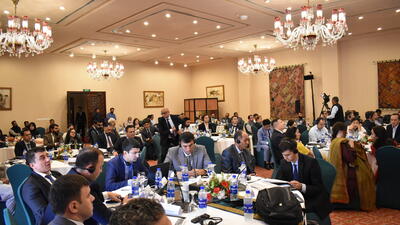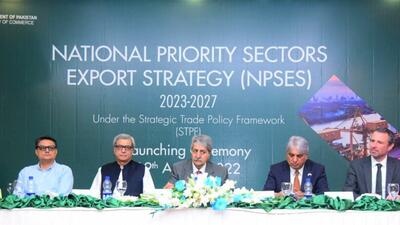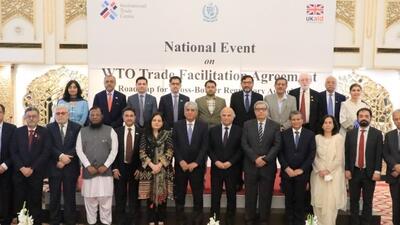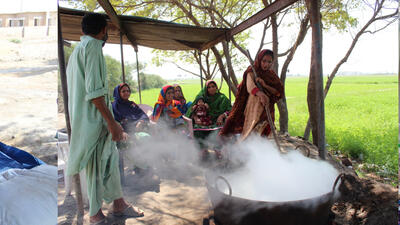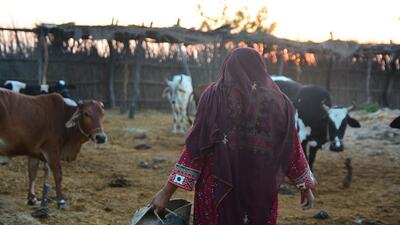Boosting trade policy in Pakistan
The experiences of countries around the world demonstrate that sound trade policies and public-private dialogue are essential to successful exporting. In Pakistan, sustainable trade expansion is hampered by a lack of training to build a cohort of well-informed policymakers and a deficit of engagement between the public and private sectors. To remedy these shortfalls, ITC is working with government and training organizations on trade-related technical assistance for Pakistan, a programme funded by the European Union.
Its aim is to build the capacity in Pakistan needed to formulate trade policies that enhance export competitiveness. Contributing factors essential to formulating optimal trade policies include:
• A high level of expertise among policymakers that matches constantly evolving trading systems;
• Policy research capacity that is responsive to policymakers’ needs;
• An understanding of commercial dynamics and the business implications of trade policy measures and a regulatory framework;
• A structured public and private consultation mechanism that has an impact on national decision-making;
• An effective and efficient implementation, monitoring and evaluation mechanism.
While these factors have been promoted in Pakistan, further efforts are required as, all too often, issues preventing trade competitiveness either fail to reach policymakers due to weak public-private consultation, or they are not addressed through proper policy interventions due to lack of capacity.
To address these shortcomings, the Business and Trade Policy section at ITC has designed interventions that recognize current domestic conditions, international best practice and the need for continuity in activities once the programme has ended:
• Institutional capacity building of key local training institutes, which is intended to have an immediate effect on the capacity of government officers working on trade policy issues;
• Fostering comprehensive, regular and well-informed public-private dialogue.
Strengthening technical capacity
To comprehend trade policy issues and design interventions to address them, policymakers need knowledge of often complex multilateral and domestic trading environments. One way to advance such knowledge in a sustainable, predictable and cost-effective manner is through the development of trade-related expertise in local training and research organizations.
To meet this objective, ITC assisted in the development of a partnership agreement between the Pakistan Institute of Trade and Development (PITAD) and the World Trade Institute (WTI). The agreement covers the development of master trainers and training modules under the guidance of WTI mentors. These will become part of a joint WTI-PITAD certified course on International Trade Law and Commercial Diplomacy. Seven trade policy areas, including trade in services, trade in agriculture, international trade negotiations, trade policy formulation, competitive analysis, regional integration, and measurement methodologies, were selected for the training of master trainers and module development in 2011. An additional seven areas have been identified for 2012, covering trade remedies, intellectual property, dispute settlement, non-tariff measures, preferential trade agreements, trade and environment, and trade and investment.
The training modules will be utilized by PITAD in its nine-month pre-service training course for the commerce and trade section of the civil service of Pakistan, as well as in short training courses for commercial diplomat designates and officers of the Ministry of Foreign Affairs. Additionally, the programme provides for PITAD to hold ad-hoc training for government officers on pressing trade issues. These activities are intended to strengthen the requisite skills and understanding of government officers on trade, regulatory and negotiation issues. In 2011, two short training sessions were organized and 66 officers and researchers from various ministries and government departments received training on trade policy formulation, competitive analysis and regional integration.
Fostering public-private dialogue
Recognizing the need to strengthen private sector participation in the formulation of trade policies and regulatory reforms in Pakistan, ITC has designed activities to institutionalize comprehensive, regular and well-informed public-private dialogue (PPD) among stakeholders on the issues of trade policy formulation and implementation. To promote the legitimacy of the dialogue, a steering committee comprising equal representation of the public and private sectors has been established with the formal approval of the Ministry of Commerce of Pakistan. Its mandate is to oversee the planning, implementation and monitoring of PPD on key issues.
During 2011, two PPDs were held, informed by commissioned research studies that were peer reviewed by international experts. The aim of the PPDs was to define policy recommendations that would promote the export of professional, transport and computer-related services, and enhance regional trade in the made-up textile and light engineering sectors. The recommendations derived from the PPD process are now being refined before submission to the steering committee for endorsement and final submission to the decision-making level of the Government of Pakistan.
Sustainability is a key focus in the design of ITC programme interventions. In Pakistan, the expertise of master trainers and stronger training institutions can be used by the government to train and educate trade policymakers beyond the life of the programme. Improvements in trade policy processes and the formal recognition of a steering committee to manage public-private dialogue will further address the trading community’s need for export competitiveness on a sustainable basis.




